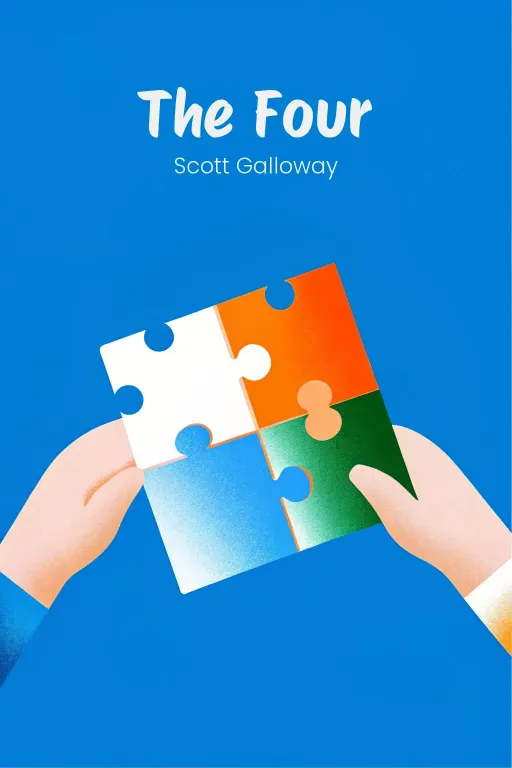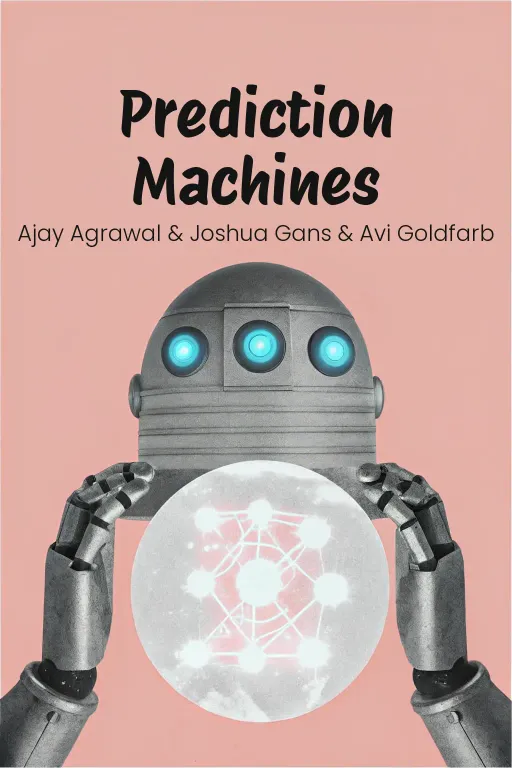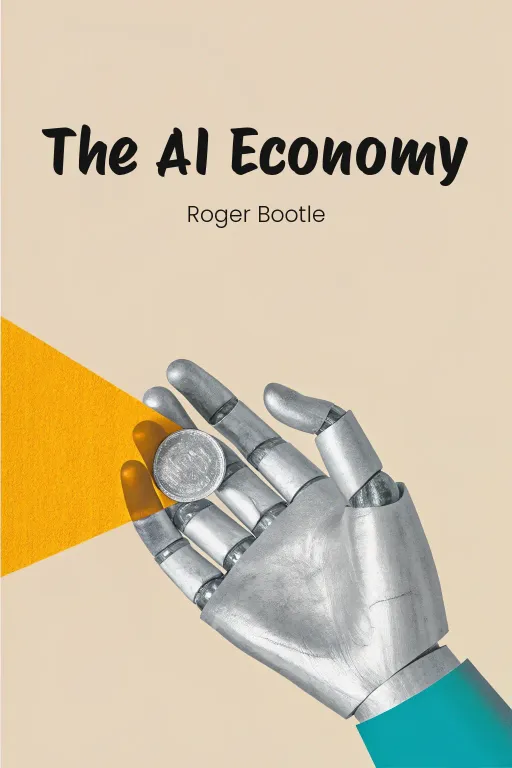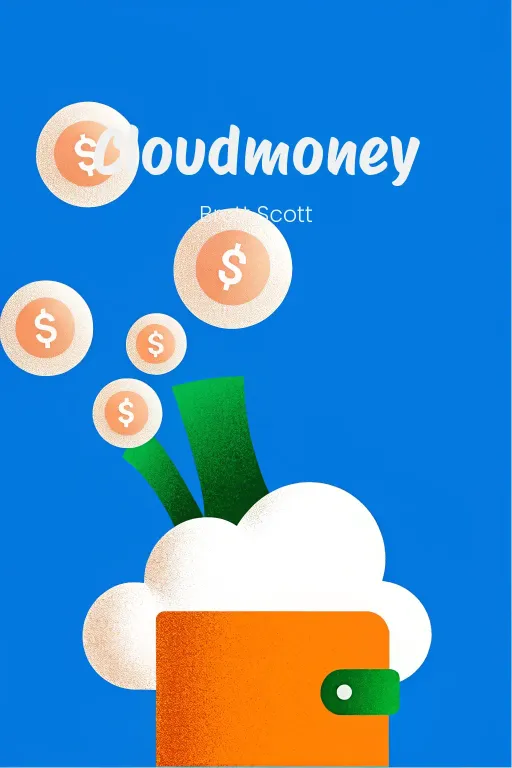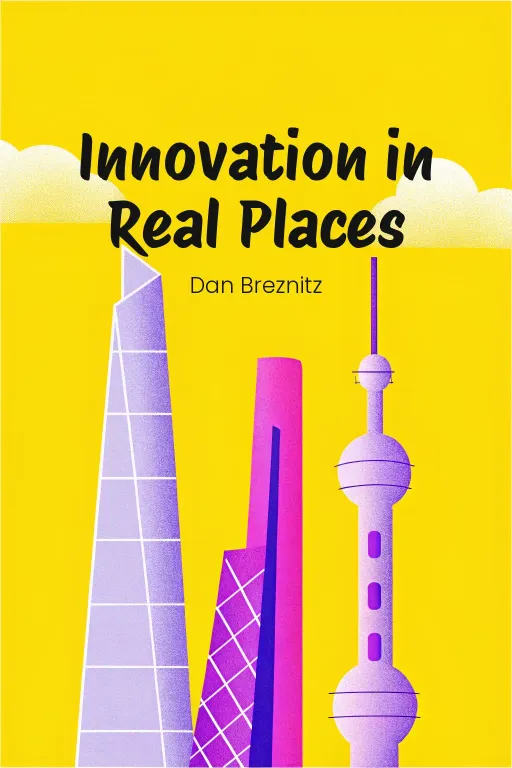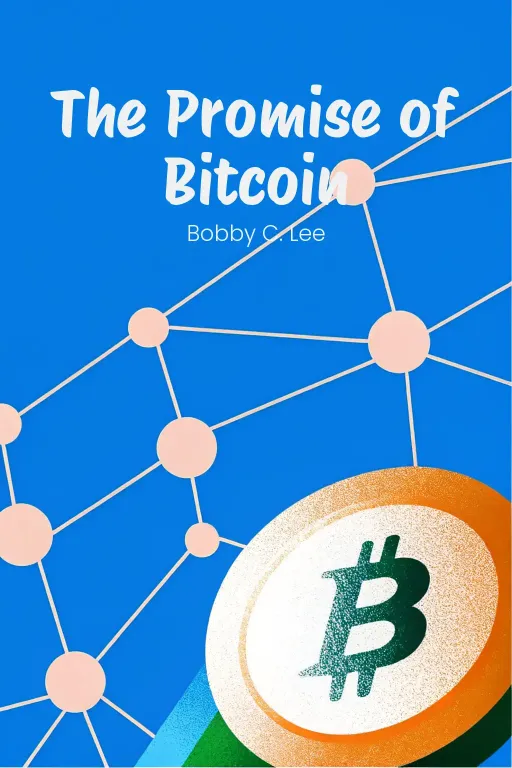
Big Tech's Grip: How to Thrive, Not Just Survive
Podcast by Wired In with Josh and Drew
The Hidden DNA of Amazon, Apple, Facebook and Google
Introduction
Part 1
Josh: Hey everyone, welcome back! Today, we're diving deep into the world of four companies that have basically reshaped our lives – Amazon, Apple, Facebook, and Google. They're not just brands, they're like, the architects of modern life, you know? Drew: Exactly, Josh. I mean, if Big Tech were a mythology, these four would be the Titans! They control our wallets, our time, and frankly, a huge chunk of our attention. But what is it that makes them so...untouchable? And, more importantly, what's the price we pay for it? Josh: That's exactly what Scott Galloway breaks down in his book, “The Four: The Hidden DNA of Amazon, Apple, Facebook, and Google”. He pulls back the curtain to show us the strategies and innovations that turned these companies into these economic superpowers. He explores how they've redefined industries, revolutionized technology, and, yeah, shaken up our personal lives quite a bit. Drew: But, as Galloway points out, it's not all shiny iPhones and one-click purchases, is it? We're talking about power concentration, privacy issues, misinformation...it's a lot messier behind the digital empire's curtain. Josh: Totally. That's why, in today's episode, we're going to dig into three key areas inspired by the book. First, we'll dissect their dominance in the global economy: how these companies became so essential that they're basically synonyms for their industries. Drew: Cool. Second, we'll tackle the ethical issues they create—whether it's data exploitation, unbeatable monopolies, or that whole thing where we're trusting our news and personal lives to, like, algorithms! Josh: Finally, we'll shift gears and focus on solutions. What can individuals and businesses do to not just survive, but actually thrive, in a world where these “Four Horsemen” seem unstoppable? Drew: So, whether you're curious about how Amazon devoured retail, why Google knows you better than your own mother, or how Apple turned luxury into a necessity, there is a lot to unpack today. Let's get into it.
The Dominance of the Four Horsemen
Part 2
Josh: Okay, Drew, great setup. So, what “really” makes these companies so dominant? I mean, it’s not just success, right? They're actually rewriting the rules for entire industries. Scott Galloway calls it their mastery of “strategic innovation and data exploitation,” and honestly, Amazon's the perfect example of that. Drew: Algorithms, right? Bezos didn’t just build an online bookstore; he built a machine that knows what I want before I do! That recommendation engine… it's convenient, sure, but it's also a little creepy. It's like it's reading my mind through my shopping cart. Josh: Absolutely! Amazon’s recommendation engine is way more than just a shopping tool—it's a data hub. Every click, every search, every abandoned cart, feeds into this system. It curates suggestions and drives consumption. That precision is what keeps consumers coming back, creating this whole cycle where convenience and data feed into each other. Bezos understood early on that convenience would trump everything in the digital age. Amazon’s algorithms embody that. Drew: "Convenience" is putting it mildly. They've boiled shopping down to one click! But who pays the price for that convenience, Josh? Brick-and-mortar stores! Are we really surprised mom-and-pop shops are folding now under the weight of Prime’s two-day shipping? Josh: Exactly. The decline of physical retail, especially those malls in the US, is totally linked to Amazon’s growth. And it didn't stop at e-commerce. When Amazon bought Whole Foods, it was like, "Okay, we're not just disrupting retail—we want to dominate it, online and off.” It's reshaping an entire industry to the point where competitors have to adapt to Amazon's model, or just disappear. Drew: Brilliant, but terrifying, right? It's like Amazon is a black hole sucking the whole retail world into its orbit. And speaking of ecosystems, Apple isn’t far behind, am I right? Josh: Oh, definitely not. Apple's genius here is marrying luxury branding with cutting-edge tech. Scott Galloway nails it when he says Apple isn't selling products—they're selling status. The iPhone isn't just a smartphone; it's pretty much a cultural symbol. Owning Apple products just makes people feel like they're part of an elite club. Drew: Totally, the cult of Apple. I mean, you’ve got the “spaceship” stores, the sleek packaging, the obsession around their launch events. People camp out overnight for iPhones like it's a Rolling Stones concert. There's some serious psychological play there. Josh: Absolutely there is, and it's intentional. Apple harnesses that emotional attachment to create almost unrivaled loyalty. But what takes it a step further is the closed ecosystem. When you buy an iPhone, you're not just buying a phone—you're locking yourself into Apple's whole universe, right? From iCloud to AirPods to MacBooks, the ecosystem works so seamlessly, that people end up staying, not just for the products, but for the experience. Drew: It's a calculated, beautiful cage—but a cage nonetheless. It's brilliant marketing and UX, sure, but it's also stifling consumer choice. Once you're in, leaving the Apple ecosystem feels like a messy breakup rather than just a tech decision. Josh: Exactly. Apple's vertical integration means they control everything: hardware, software, services – everything. It ensures quality, yes, but also, once people are hooked, they're less likely to leave the ecosystem. Drew: Clever, but a bit manipulative. Speaking of manipulative… Facebook, anyone? Josh: Facebook's game is on a whole other level. Apple sells status, Amazon sells convenience, but Facebook sells connection. It taps right into our need to belong, to share, to be seen. Underneath all the sharing, you've got some of the world's most advanced data analysis. By tracking likes, comments, and even the amount of time you spend looking at a post, Facebook's algorithms know exactly what will keep you on the platform. Drew: And by "keep you scrolling," they mean "serve you ads." Come on, Facebook isn’t connecting people out of the goodness of its heart. It's connecting people to advertisers. The platform is a giant ad machine disguised as social networking. Josh: True, but it's incredibly effective. Facebook's ability to target ads based on user data has made it one of the most powerful advertising platforms out there. It knows how to trigger emotions, amplify content, and—let's be real—stir up a little controversy to keep users engaged. Drew: Yeah, sometimes to dangerous ends. Selling me shoes I don't need is one thing, but when those algorithms start steering election outcomes and spreading misinformation? That's when things get, uh, dark. Josh: Absolutely. Facebook blurs the line between connection and manipulation, and it does raise some huge ethical questions. But before we get into the dark stuff, let’s zoom out for a sec, and if Facebook rules our social lives, and Amazon dominates retail, Google is directing everything else, right? Drew: Oh, you mean the company that's basically replaced libraries, dictionaries, and therapists? Let’s be honest, Google isn’t just a search engine. It's the first place people go for answers now—whether it’s finding a mechanic, diagnosing a rash, or figuring out what's for dinner. Josh: Exactly! Google's dominance is built on its ability to provide instant, precise results. Beyond search, their AdWords platform is a total game-changer. Advertisers bid to appear alongside search results, creating this really efficient marketplace for consumer attention. I mean it's one of the reasons Google rakes in billions in ad revenue. Drew: Right, but it's not just revenue—it's influence! Google has positioned itself as the ultimate source of information. It decides what ranks, what matters, and what we see first. That's not just power—it's power over knowledge itself. Josh: And that, Drew, might be the most consequential aspect of all. By shaping how people access and interact with information, Google has become indispensable to modern life. But, like the rest of the Four, its dominance comes with some serious trade-offs that we can’t ignore. Drew: No kidding. Whether it's redefining industries, capturing consumer loyalty, or leveraging data in ways that raise serious privacy concerns, the Four Horsemen are rewriting the rules of the game. And, well, not everyone's winning here.
Ethical and Societal Implications
Part 3
Josh: So, this dominance naturally begs the question: what are the ethical and societal implications of such power? Scott Galloway really nails it when he says these companies have brought us both incredible innovation combined with some pretty immense consequences for our society. Drew: Exactly, and that's where it gets really interesting. Let's dive into the ripple effects, you know? Consumerism, privacy, labor issues, corporate responsibility. Because let's be honest, behind all the cool gadgets and seamless services, there's a price to pay, right? Josh: Absolutely. Let’s start with consumerism. Each of these companies have really weaponized our natural desire for convenience and instant gratification. Take Amazon, for instance. Galloway argues their success isn't just about selling stuff; it's about completely reshaping our behavior to make us totally dependent on their platform. Drew: Dependent is an understatement, Josh. I mean, Amazon has us practically Pavlov'd! One-click purchasing with Prime isn't just a feature; it's a freakin' lifestyle. Honestly, I think people would be lost if two-day shipping vanished tomorrow. Josh: You’re not wrong! Bezos understood early on that convenience sells, and Amazon basically perfected that formula. I mean, by 2016, over half of U.S. households were Prime members. That really shows how ingrained it is. But we can't forget that convenience comes at a cost—especially for the environment and local economies. Drew: Ah, you mean the death of brick-and-mortar stores? Yeah, it's hard to ignore. Amazon's growth has just gobbled up traditional retail. All the malls are turning into ghost towns—places that used to be community hubs are pretty much irrelevant now. Josh: Exactly. And then you have the environmental impact. That endless stream of packaging, the carbon footprint of Prime's shipping logistics? It all adds up. We're feeding this crazy demand for "instant everything," but what's it costing us in terms of sustainability? Drew: Don't even get me started on the human toll! I mean, Amazon's logistics empire wasn't built on happy workers in ideal conditions. We’ve all heard the stories: ruthless productivity quotas, constant surveillance, grueling shifts in those warehouses. Josh: It's this ultimate contrast, isn't it? For the consumer, Amazon's the poster child for effortless shopping. But behind the scenes, it's anything but seamless for the workers who make it happen. Galloway says this disconnect is a critical societal issue. Drew: Speaking of disconnect, let’s shift gears from Amazon's warehouses to our digital habits. Amazon exploits convenience, but Facebook leverages something even deeper: our need for connection. Josh: Exactly. It’s what makes Facebook so brilliant and so dangerous. It taps into our social instincts—the need to belong and to share and to compare—and turns it into a business model. Every photo, every like—it’s all data, fueling one of the most powerful advertising machines ever! Drew: And we're just handing over our privacy for free, aren't we? Facebook doesn’t charge us a dime, but it’s not out of generosity. No, the real product is us—our attention, our habits, our preferences. They package all that up and sell it to the highest bidder. Josh: And the scariest part is how unaware most users are about what they're giving up. Everything you do on the platform builds a more detailed profile of you—what you like, what triggers you, what keeps you scrolling. And while personalized ads might seem harmless at first, it gets much darker when that data's used to manipulate emotions or spread misinformation. Drew: Like how algorithms reward sensationalist garbage just to keep us glued to our screens? I get it, you're more likely to click on something outrageous. But when that strategy leads to real-world violence—like the "Pizza Gate" thing—you've got to wonder, you know? How much damage is Facebook willing to tolerate for profit? Josh: It's alarming. And it raises a serious question of responsibility. Facebook prioritizes engagement because it's good for business, but the societal consequences—polarization, misinformation, even threats to democracy—are catastrophic. Drew: Which makes me wonder, are we even asking the right questions about Big Tech? Instead of "How do we fix this?", shouldn't we be asking "Who's actually accountable for this mess?" Josh: Exactly, Drew, accountability is key. Take Apple—while Facebook’s exploitation might be obvious, Apple’s ethical dilemmas are more subtle, but no less significant. Drew: Let me guess – we're talking about shiny gadgets built under less-than-shiny conditions? Josh: Right. Apple’s products scream luxury and prestige, but the manufacturing reveals a much grimmer picture. Many of their devices are assembled in places like Foxconn, where you hear those reports of overwork, hazardous conditions, even suicides. Apple’s taken steps to address these issues, like doing audits and committing to corporate responsibility, but systemic problems really do persist. Drew: So, what you're saying is: the packaging is sleek, but the supply chain, not so much. And, let's not forget about their creative ways of avoiding taxes. You know, Apple's profit-shifting, especially in Ireland, is why regulators are starting to really scrutinize how Big Tech basically plays by its own rules. Josh: Exactly! It's a perfect storm of influence, wealth, and minimal oversight. When companies like Apple can sidestep taxes or avoid scrutiny, it just highlights the imbalance of power that these giants have. Drew: And that's the heart of the matter, isn't it? Whether we're talking about Amazon's labor practices, Facebook's data exploitation, or Apple's supply chain, the question is: How much are we going to let them get away with? Josh: That’s the billion-dollar question - literally, given their market caps. And it’s not just up to regulators or policymakers. We, as consumers, need to realize that every dollar we spend, every app we download, every product we buy is a form of endorsement. Drew: Right! Galloway makes a great point when he says consumer choice is power. But let's be real, how many people are willing to trade convenience for ethics? Josh: That’s where the tension lies. These companies are designing experiences that are almost impossible to resist. But if we want a more equitable and ethical future, it starts with awareness—and pushing these corporations to balance innovation with integrity. Drew: Well put. As much as I’d love to wrap on a hopeful note, it’s clear the Four Horsemen aren’t going anywhere—at least, not anytime soon.
Navigating the Future
Part 4
Josh: So, understanding all this really makes you think about how we, as individuals and as a society, can navigate this tech-dominated future. If these companies are so deeply embedded in our lives – economically, culturally, even psychologically – how do we not just survive, but actually “thrive” in their shadow? Drew: And thrive “without” losing our personal agency or morals to their algorithms, right? Okay, so where do we even start, Josh? Is there a blueprint for navigating this world run by the Four Horsemen? Josh: Well, it starts with adaptability—embracing change as a constant, and finding ways to stay relevant. Whether you're an individual trying to future-proof your career, or a business trying to survive Amazon’s retail domination, adaptability is absolutely key. Drew: Hmm, so we all need to channel our inner chameleon? Give me a real-world example. How does someone actually “do” this, especially when the pace of change feels so overwhelming? Josh: A great example is staying on top of technological advancements. Take artificial intelligence. AI isn't just a buzzword anymore; it's fundamentally transforming industries. Workers in retail, healthcare, even creative fields are seeing tasks that were once manual now automated by machine learning. The key is to upskill—learn to work “with” these technologies, not be sidelined by them. Drew: Okay, but let’s be honest—there's a real learning curve here, and not everyone is thrilled to take online courses in AI algorithms after a long day at work. How accessible are these opportunities, really? Josh: That's a valid concern, but platforms like Coursera or edX have really made high-quality, flexible courses available. Many of them are either free or low-cost. Plus, they're not just about coding or complex engineering—they offer introductions to how AI affects industries like digital marketing or supply chains. The takeaway is, adaptability doesn’t require mastering every tech buzzword; it means proactively seeking knowledge about the changes impacting your field. Drew: Fair enough. But what about businesses? I mean, not every mom-and-pop store has the resources of a Walmart to reinvent itself and take on Amazon. Josh: Absolutely, smaller businesses face bigger challenges. But even giants like Walmart had to evolve—they embraced hybrid models to stay competitive. Using e-commerce to complement physical stores—like online grocery orders with curbside pickup—is a lesson smaller businesses can adapt in their own ways. It might not be about mimicking Amazon, but about finding unique ways to integrate digital-first practices while maintaining their unique appeal. Drew: So, survive by being smart and evolving intentionally. I like that. Shifting gears a bit to something more individual—personal branding. It feels like a buzzword, but is it truly that important in this digital landscape? Josh: Oh, it’s more than important—it's essential. With so much competition, especially online, personal branding helps you stand out by harnessing tools like social media and networking platforms. It’s about taking your career or passion and presenting it in a way that feels authentic, yet distinct. Drew: Authentic, huh? Are we talking about endlessly polished LinkedIn posts where everyone sounds like a motivational speaker? Josh: Not exactly! Personal branding works best when it’s genuine. Imagine someone on LinkedIn sharing insights on sustainable e-commerce trends because they’re passionate about ethical consumerism. Or a photographer using Instagram to highlight their creative process around minimalist storytelling. These aren’t just performances—they’re ways to attract opportunities that align with your values and strengths. Drew: That makes sense. You’re crafting a digital version of yourself. And here's the thing: if algorithms—like Google or LinkedIn—are playing gatekeeper to opportunities, wouldn’t a strong personal brand help you beat them at their own game? Josh: Exactly! It’s like SEO for your career. By building a consistent, authentic digital presence, you essentially optimize yourself for visibility and trust in a saturated marketplace. Drew: Speaking of trust, let’s move on to ethical consumption. While individuals can brand themselves and stay adaptable, the bigger question is how we collectively respond to Big Tech’s impact. How do consumers challenge the systems these companies create? Josh: That’s the heart of ethical consumption—using purchasing power to demand better practices from corporations. Take Amazon, for example. Supporting small businesses or alternatives committed to fair labor challenges Amazon’s dominance. Every dollar spent on more ethical options is a signal—however small—that convenience alone shouldn’t justify ignoring the broader impact. Drew: But isn’t that easier said than done? Amazon, for all its flaws, has created a model so overwhelmingly convenient and affordable that the average person doesn’t even consider the alternatives. It's like trying to wean people off fast food when they’re hooked on cheap pricing and instant satisfaction. Josh: True, convenience is a tough habit to break—but more sustainable marketplaces are emerging, offering ethical and eco-friendly options. And you know, while no single individual can take on a giant like Amazon alone, change happens bit by bit. Small shifts in consumer behavior can snowball into broader market trends. Drew: Okay, but let’s be honest—shouldn’t more responsibility lie with the corporations themselves? Consumers can only do so much. Isn’t it time these companies were held more accountable for the systems they create? Josh: Without question. Corporate accountability is crucial. Take Apple as an example. Public scrutiny of its supply chain practices led to promises of better factory conditions and higher transparency through supplier reports. It shows that consumer and societal pressure can push companies toward better practices—but there’s still a long way to go. Drew: A “long” way. I mean, look at Apple’s labor policies or Facebook's data privacy scandals—it often takes massive public outcry just to see incremental improvements. It shouldn’t be so reactive. What about proactive regulation to hold these juggernauts accountable? Josh: Proactive is key. Look at Europe’s GDPR laws. They’ve set a precedent for how companies should prioritize privacy and transparency. Users now have more rights over their data, and companies face penalties if they abuse those rights. It’s proof that regulatory frameworks can nudge tech toward ethical standards, though enforcement often lags behind innovation. Drew: So, what I’m getting here is—balance. Individuals adapt, corporations take responsibility, and governments step up with policies that reflect the reality of Big Tech power. But there’s one more piece to this, right? Josh: Absolutely. Lifelong learning. If adaptability is the mindset and personal branding is the strategy, then lifelong learning is the engine that keeps folks relevant as industries and technologies evolve. Platforms like edX or Coursera don’t just provide tools — they enable growth mindsets that thrive even in uncertain landscapes. Drew: A growth mindset, huh? That’s an optimistic way to look at it. Embracing skills, prioritizing learning, and refusing to stagnate in this unsettlingly fast-paced world. But how sustainable is this constant chase for relevance? Josh: That’s a fair point, Drew. It’s not about endlessly chasing trends but instead cultivating skills and knowledge that align with your larger purpose. It’s about being intentional, not reactive, to how you grow in this ecosystem. Drew: Alright, Josh. Individual adaptability, branding, ethical consumption, and corporate responsibility—all underpinned by lifelong learning. It’s a solid framework, even if the path's not exactly easy. The big question is: are we ready to do the work?
Conclusion
Part 5
Josh: Okay, so to recap, we've really dug into how Amazon, Apple, Facebook, and Google have taken over. Their innovation is off the charts, they've totally changed industries, and they have so much influence over us consumers. But it's not all sunshine and roses, right? We've also seen the downsides, like privacy issues, how they treat their workers, the environmental impact, and the fact that they kind of control culture and information. Drew: Exactly. It’s like, they're not just changing the market; they're changing how we live and even think. The innovation is clear, but can we rein them in? How do we get them to act ethically and responsibly towards society? Josh: Right. And as these tech giants become even more powerful, we can't just sit back. Whether it's learning to adapt, building our own personal brands, or making smart choices as consumers, what we do as individuals can actually make a difference. Drew: Absolutely. And we can’t forget about the bigger picture – demanding better from these companies and pushing for stronger regulations. I know, it feels like a small voice against a giant, but if we all demand accountability, they can't ignore us. Josh: So, here’s what I want everyone to think about: What does progress “really” mean to you? Because if we want innovation to benefit everyone, not just a select few, we need to decide what kind of future we want and then actually work to make it happen. Drew: Wow, that's a lot to chew on. But it's so important. Well, that’s all the time we have for today, folks. Until next time, keep thinking big, stay curious, and remember, your choices really do matter.
